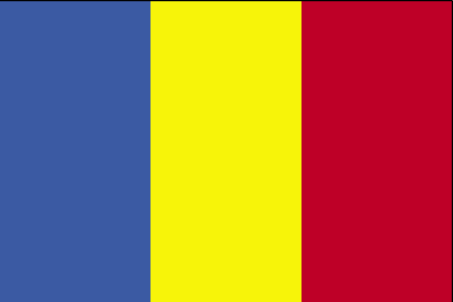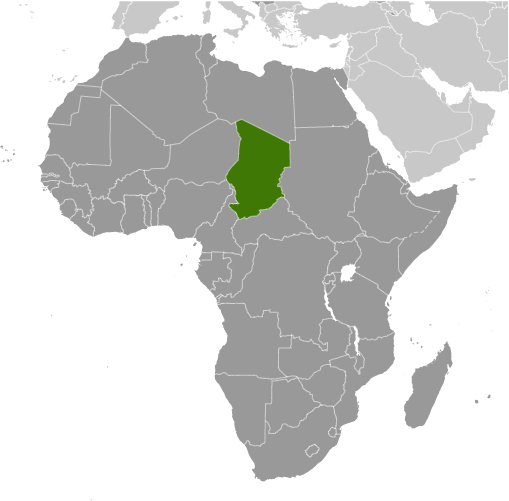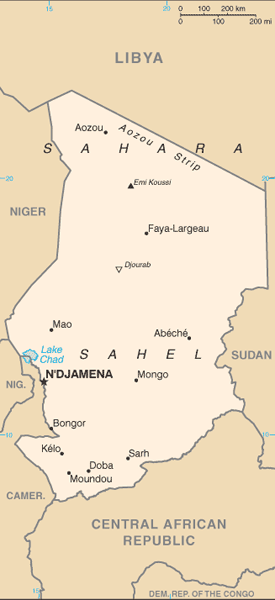Chad, part of France's African holdings until 1960, endured three decades of civil warfare as well as invasions by Libya before a semblance of peace was finally restored in 1990. The government eventually drafted a democratic constitution and held flawed presidential elections in 1996 and 2001. In 1998, a rebellion broke out in northern Chad, which has sporadically flared up despite several peace agreements between the government and the rebels. In 2005, new rebel groups emerged in western Sudan and made probing attacks into eastern Chad despite signing peace agreements in December 2006 and October 2007. Power remains in the hands of an ethnic minority. In June 2005, President Idriss DEBY held a referendum successfully removing constitutional term limits and won another controversial election in 2006. Sporadic rebel campaigns continued throughout 2006 and 2007. The capital experienced a significant rebel threat in early 2008.
Population
10,543,464 (July 2010 est.)
Country comparison to the world:78
Nationality
Noun:Chadian(s)
Adjective:Chadian
Ethnic groups
Sara 27.7%, Arab 12.3%, Mayo-Kebbi 11.5%, Kanem-Bornou 9%, Ouaddai 8.7%, Hadjarai 6.7%, Tandjile 6.5%, Gorane 6.3%, Fitri-Batha 4.7%, other 6.4%, unknown 0.3% (1993 census)
Religions
Muslim 53.1%, Catholic 20.1%, Protestant 14.2%, animist 7.3%, other 0.5%, unknown 1.7%, atheist 3.1% (1993 census)
Languages
French (official), Arabic (official), Sara (in south), more than 120 different languages and dialects
Country Name
Conventional long form:Republic of Chad
Conventional short form: Chad
Local long form:Republique du Tchad/Jumhuriyat Tshad
Local short form:Tchad/Tshad
Government Type
republic
Capital
Name:N'Djamena
Geographic coordinates:12 06 N, 15 02 E
Time difference:UTC+1 (6 hours ahead of Washington, DC during Standard Time)
Administrative divisions
22 regions (regions, singular - region); Barh el Gazel, Batha, Borkou, Chari-Baguirmi, Ennedi, Guera, Hadjer-Lamis, Kanem, Lac, Logone Occidental, Logone Oriental, Mandoul, Mayo-Kebbi Est, Mayo-Kebbi Ouest, Moyen-Chari, Ouaddai, Salamat, Sila, Tandjile, Tibesti, Ville de N'Djamena, Wadi Fira
Independence
11 August 1960 (from France)
National Holiday
Independence Day, 11 August (1960)
Constitution
passed by referendum 31 March 1996; a June 2005 referendum removed constitutional term limits
Legal system
based on French civil law system and Chadian customary law; has not accepted compulsory ICJ jurisdiction
Suffrage
18 years of age; universal
Executive branch
Chief of state: President Lt. Gen. Idriss DEBY Itno (since 4 December 1990)
Head of government:Prime Minister Emmanuel NADINGAR (since 5 March 2010)
Cabinet:Council of State; members are appointed by the president on the recommendation of the prime minister
(For more information visit the World Leaders website)
Elections: president elected by popular vote for a five-year term; if no candidate receives at least 50% of the total vote, the two candidates receiving the most votes must stand for a second round of voting; last election held on 3 May 2006 (next to be held by May 2011); prime minister appointed by the president
Election results:Lt. Gen. Idriss DEBY Itno reelected president; percent of vote - Lt. Gen. Idriss DEBY 64.7%, Delwa Kassire KOUMAKOYE 15.1%, Albert Pahimi PADACKE 7.8%, Mahamat ABDOULAYE 7.1%, Brahim KOULAMALLAH 5.3%; note - a June 2005 national referendum altered the constitution removing presidential term limits and permitting Lt. Gen. Idriss DEBY Itno to run for reelection
Legislative branch
unicameral National Assembly (155 seats; members elected by popular vote to serve four-year terms); note - the 1996 constitution called for a Senate that has never been formed
Elections:National Assembly - last held on 21 April 2002 (next to be held by 2009); note - legislative elections, originally scheduled for 2006, were first delayed by National Assembly action and subsequently by an accord, signed in August 2007, between government and opposition parties
Election results:percent of vote by party - NA; seats by party - MPS 110, RDP 12, FAR 9, RNDP 5, UNDR 5, URD 3, other 11
Judicial branch
Supreme Court; Court of Appeal; Criminal Courts; Magistrate Courts
Political Parties and Leaders
Federation Action for the Republic or FAR [Ngarledjy YORONGAR]; National Rally for Development and Progress or RNDP [Delwa Kassire KOUMAKOYE]; National Union for Democracy and Renewal or UNDR [Saleh KEBZABO]; Party for Liberty and Development or PLD [Ibni Oumar Mahamat SALEH]; Patriotic Salvation Movement or MPS [Mahamat Saleh AHMAT, chairman]; Rally for Democracy and Progress or RDP [Lol Mahamat CHOUA]; Union for Renewal and Democracy or URD [Gen. Wadal Abdelkader KAMOUGUE]
Political pressure groups and leaders
rebel groups
International organization participation
ACCT, ACP, AfDB, AU, BDEAC, CEMAC, FAO, FZ, G-77, IAEA, IBRD, ICAO, ICCt, ICRM, IDA, IDB, IFAD, IFC, IFRCS, ILO, IMF, Interpol, IOC, ITSO, ITU, ITUC, MIGA, NAM, OIC, OIF, OPCW, UN, UNCTAD, UNESCO, UNIDO, UNOCI, UNWTO, UPU, WCO, WFTU, WHO, WIPO, WMO, WTO
Diplomatic representation in the US
Chief of mission:Ambassador Mahamat Adam BECHIR
Chancery: 2002 R Street NW, Washington, DC 20009
Telephone: [1] (202) 462-4009
FAX:[1] (202) 265-1937
Diplomatic representation from the US
Chief of mission:Ambassador Louis NIGRO
Embassy:Avenue Felix Eboue, N'Djamena
Mailing address:B. P. 413, N'Djamena
Telephone:[235] 251-62-11, 251-70-09, 251-77-59
FAX:[235] 251-56-54
Flag description
three equal vertical bands of blue (hoist side), yellow, and red; the flag combines the blue and red French (former colonial) colors with the red and yellow of the Pan-African colors; blue symbolizes the sky, hope, and the south of the country, which is relatively well-watered; yellow represents the sun, as well as the desert in the north of the country; red stands for progress, unity, and sacrifice
note: similar to the flag of Romania; also similar to the flags of Andorra and Moldova, both of which have a national coat of arms centered in the yellow band; design was based on the flag of France










